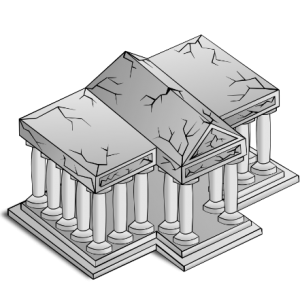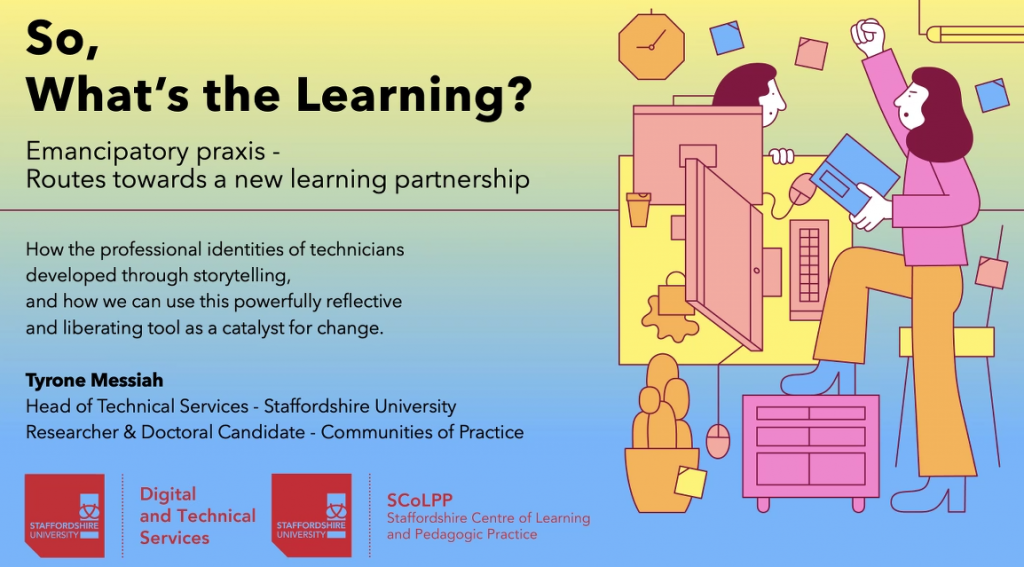Paul Orsmond and Dr Eleanor Atkins
When people say ‘it ticks all the boxes’, we know instantly what they mean. It is a metaphor used to represent their ideal or something that will do the job. My new house ticks all the boxes means ‘it has everything we want’. It’s comfortable being in the ideal. Well comfortable that is until new boxes come along to be ticked.

A house that ticks all the boxes for a single person 25-years of-age, can be a very different property for that same person at 65-years of age, retired and living with a new partner. We rarely look back at the history of the boxes we tick, at our changing ideals. We are often too busy with life, that complex interactions of the everyday. If the single 25-year-old didn’t respond to the pressures and requirements to move house, we can imagine the sort of house they would be living in when they were 65-years old. Extensions, lots of different styles, a bit out of balance, and worn. In terms of moving to a new house we do not think of change as being problematic, although buying the new house might be.
In higher education we also tick boxes, although increasingly members of the university might not see these ticked boxes as something that allows the job to be done. The boxes have names, such as delivery patterns, taught skills, assessments (low and high), student experience, progression routes, recruitment, retention, course monitoring, administration, and research. There is a learning box. Learning appears to be many things, for example: collaborative, inquiry based, authentic, problem based, digital, resource based, simulated, action research based and flipped. These are the different vehicles for learning and universities tend to focus on the ‘know what’ and ‘know why’ learning. Both these are often measured through individual assessments, because in HE it is the individual who is learning, even if the individual works with others.

Using the house analogy, if you had started working within HE as an academic at 25-years of age, and were now 65-years old, universities as structures have not moved to accommodate the new, but have built extensions, have lots of different ill-fitting styles, are out of balance and from inside they look worn out, although they can appear glossy from the outside. For some this doesn’t matter. ‘Why change HE if it is successful’. Success is often measured through ticking several metrics (boxes) such as the increasing number of students awarded first and upper second-class degrees. In many ways HE has become a BOX that is ticked – job done.
Another metaphor regarding boxes is used when we need a better perspective. We are told to ‘think outside the box’. Once outside the HE box, we see life beyond the boundaries of the box. This allows us to re-write the rules, be creative, to reimaging learning and teaching. We can get a different perspective of old themes. Instead of measuring only ‘know what’ and ‘know why’ we can look to ‘know how’ – perhaps in terms of making judgements of best practice, conceivably through working with other disciplines, and ‘know who’, recognising the expertise in others. This can be seen through a different type of learning, involving negotiating meaning through participating in different practices with others. Recognising learning identities – own and others. Not easily assessed. We need this out of box experience as HE must shift its focus on learning. Graduates are expected to have the required capability sets for collaboratively solving modern global challenges, including climate change, and supporting sustainable growth. It is not a world for individual learners. HE needs more than another extension. Students when they leave university are not prepared for life outside the box. To be successful in the future we need HE to think outside its boxes.

In our next blog we look more closely at why we need to reimagine learning in higher education, and how to go about it. One of the things we find, is that students are not the only learners in HE.








